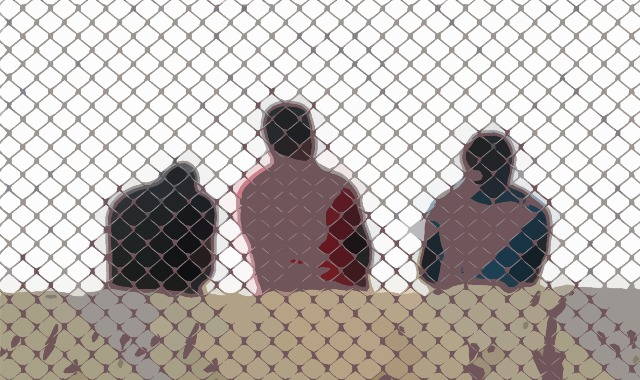Deportation Risks
Human Rights Violations of Prisoners in Egypt
There is vast documentation on the human rights violations committed by Egypt.
According to research by Amnesty International, Egypt’s National Security Agency (NSA) has routinely used enforced disappearance, torture, and other ill-treatment to extract “confessions” and punish opponents.
Judges and prosecutors use their broad powers to arbitrarily detain defendants both before and during trial. Since 2013, thousands have been held in pre-trial detention for prolonged periods, sometimes for up to five years, based on completely unfounded charges.
In some cases, the police have even detained individuals for months after the courts had ordered their release.
Civilian and military courts have issued notorious draconian verdicts after unfair mass trials and have sentenced hundreds of people to death based on “confessions” extracted under torture.
The authorities have also used excessive and arbitrary probation measures to harass activists, even after their release.
Arrest on Arrival
Political opponents, critics, academics, and even foreign and Egyptian journalists are subjected to arrest on arrival.
An example of this is the arrest of Patrick Zaki, a researcher specializing in gender at the Egyptian Initiative for Personal Rights (EIPR) and a postgraduate student in Italy upon landing in Egypt in 2020. According to Amnesty, NSA officers kept him blindfolded and handcuffed throughout his 17 hours’ interrogation at the airport and then at an undisclosed NSA location in Mansoura.
During interrogation, he was frequently threatened, beaten on his stomach and back, and tortured with electric shocks.
Unfortunately, this is a common practice by the Egyptian authorities against anyone the state deems as a threat upon arrival in Egypt. It is feared that this is what awaits the Egyptian families if a decision is made to return them to Egypt.
Torture and Forced Disappearances
Since 2015, there has been a spike in the use of enforced disappearances by the NSA and the Military Intelligence to extract “confessions” under torture and other ill-treatment, which prosecutors rely on heavily to formulate charges and as evidence to secure convictions to harsh sentences and even the death penalty. To date, at least 1,700 people have been subjected to enforced disappearances for periods of up to 30 days.
According to the United Nations and Amnesty International, torture and other ill-treatment against perceived opponents, including children, is used systematically in Egypt.
Methods of torture reported by victims and witnesses include electric shocks to sensitive parts of the body, such as the genitals, lips, and ears; prolonged suspension by the limbs while handcuffed and naked; sexual abuse, including rape; and beatings and threats.
Some detainees said they had been subjected to the “grill” – rotation on a bar inserted between their tied arms and legs and balanced between two chairs.
Most of these torture methods are the same or similar to those used against detainees under former President Mubarak. The Penal Code does not effectively criminalize torture and its definition of torture is not in line with international law and standards.
Lives of Political Prisoners
Prisoners and detainees are held in cruel and inhuman conditions, often deprived of adequate medical attention. Critics are subjected to prolonged and indefinite solitary confinement which in some cases amounts to torture.
Since 2014, the authorities have also been denying family visitations to at least 61 detainees in politically motivated cases, in some cases for up to two consecutive years.
The Community for Justice, on December 10, 2019, documented the death of 958 detainees, including 9 children, in Egyptian detention centers during the period between 30 June 2013 and 1 December 2019.
Various reports by international civil rights organizations have condemned The Egyptian Ministry of Interior’s adoption of medical negligence strategy to get rid of the regime’s opponents.
This goes against the law governing the current prison conditions in Egypt, which stipulates that curative service and health care are an inherent right of every prisoner, which the Prisons Authority must provide through its affiliated institutions, or through private hospitals at the expense of the prisoner after taking “necessary approvals”.



